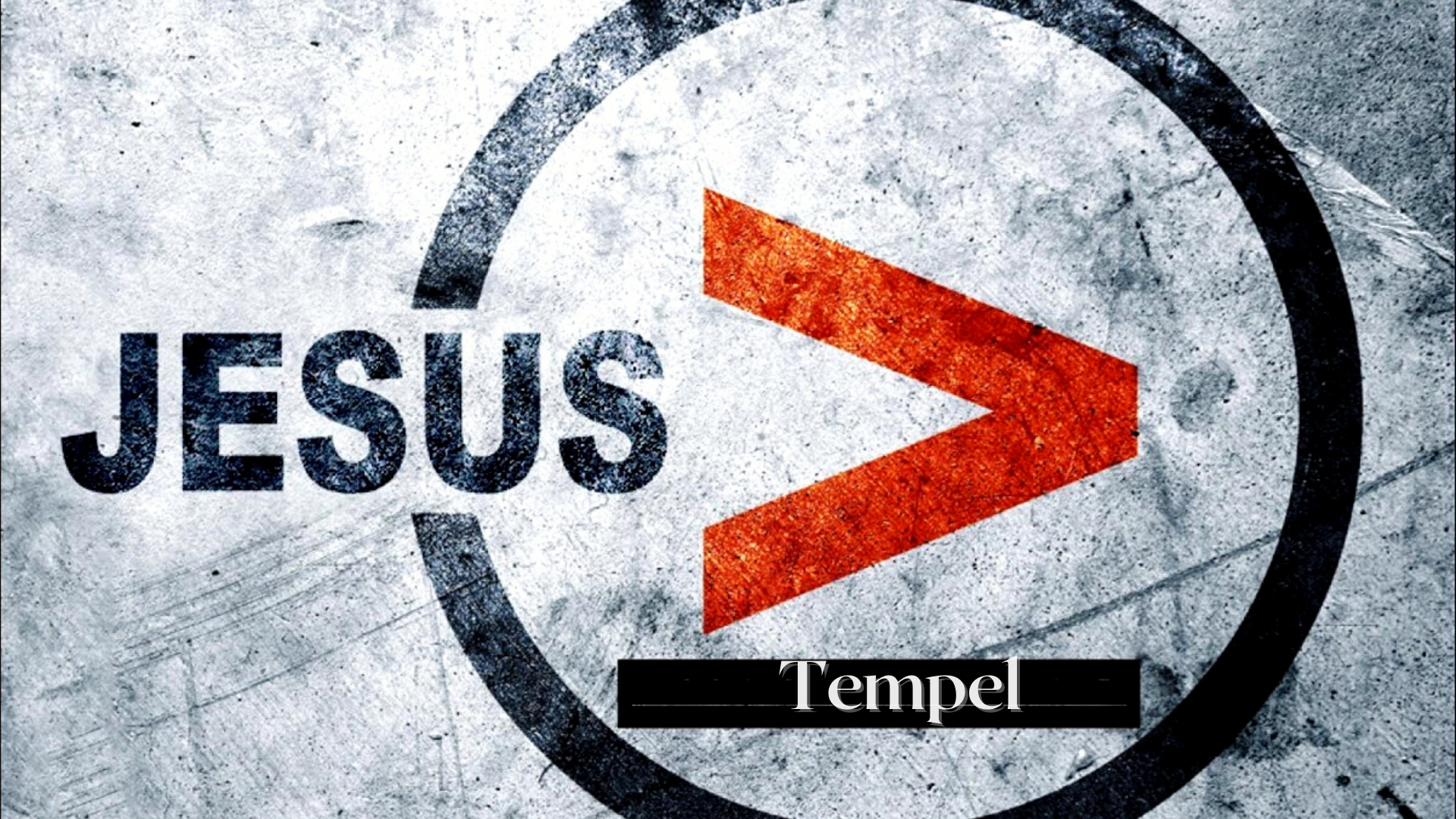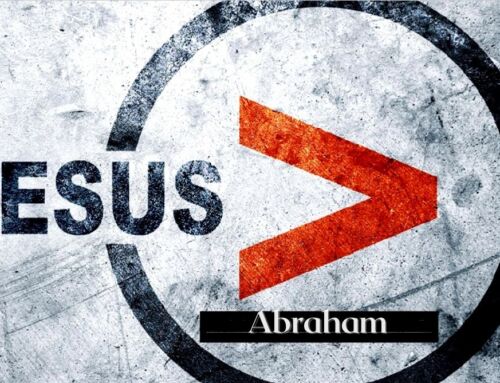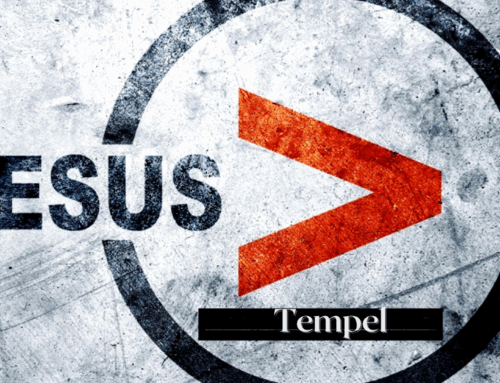Jesus, greater than Jonah
Summary:
In Matthew 12:41 Jesus says, that he is greater than Jonah. The contrasts between Jonah and Jesus are striking: While Jonah disobeyed and ran from God, Jesus obeyed and left His heavenly glory to come to earth and fulfill the Father’s mission. Jonah had no love for those he preached to; Jesus wept over Jerusalem because He loved His enemies, and He forgave them even as He hung on the cross. Jonah was preserved through a fish despite his rebellion; Jesus willingly laid down His life and died for our sins. Jonah survived the fish, but Jesus truly died – and rose again in victory. Only Jesus has conquered death. No other religious leader offers that kind of hope.
Introduction
We’re continuing our mini-series titled “Greater Than”, where we explore the statements about Jesus declaring that He is greater than anyone else in Scripture. Today, we turn straight to our passage in the Gospel of Matthew, chapter 12:
38 Then some of the scribes and Pharisees answered, saying, “Teacher, we want to see a sign from You.” 39 But He answered and said to them, “An evil and adulterous generation seeks after a sign, and no sign will be given to it except the sign of the prophet Jonah. 40 For as Jonah was three days and three nights in the belly of the great fish, so will the Son of Man be three days and three nights in the heart of the earth. 41 The men of Nineveh will rise up in the judgment with this generation and condemn it, because they repented at the preaching of Jonah; and indeed a greater than Jonah is here. 42 The queen of the South will rise up in the judgment with this generation and condemn it, for she came from the ends of the earth to hear the wisdom of Solomon; and indeed a greater than Solomon is here. (Matthew 12, 38-42)
As we look at the story of Jonah, you know it is one of those stories that—if you were to ask, especially perhaps children, “What’s your favorite story in the Bible?”—they probably will say at some point they love the story of Jonah. When you think about it, it’s quite a dramatic story. It’s a very fascinating story. It’s one of those stories that captivates us. It captures our attention. It’s dramatic, full of action — a thriller.
The story is real and ultimately points to Jesus
It happens to be one of those stories where the critics love to come and say the Bible is just full of a bunch of fairy tales. I mean, that a man could survive three days in a fish in the Mediterranean — and that’s not possible, they say.
But you notice that Jesus himself considered this to be a real and historical event. And he, in turn, says, “Well, if you think that’s hard to believe, I’m also going to spend three days in the heart of the earth in death.” No doubt for the people of Israel, this was one of those stories in their tradition that was interesting, something they would brag about.
But for Jesus, he says: “The greater meaning of this story is actually what is going to happen with me and my death and my resurrection. And if you thought three days and three nights in the belly of a fish was cool — you
→ just wait and see what I’m (Jesus) about to do.”
An insincere request from Pharisees for a sign
In this passage, we see that it all begins with a request. In verse 38, some of the scribes and Pharisees ask Him to provide a sign. But this request was an insincere request. And that is why Jesus responds the way that he does. He says,
“An evil and adulterous generation seeks after a sign…” (Matthew 12:38)
Here he’s talking to the most holy people in the land of Israel — in the eyes of Israel. You know, it’s not very winsome, is it? Not friendly, not politically correct. But Jesus knew that these people had heard enough, and they had seen enough to draw the conclusion as to who Jesus was. And so there was already sufficient evidence for them to believe that he was the Messiah that God had long ago promised.
→It’s not a lack of evidence; it’s a lack of belief
If you think about it, there’s a very immediate point of application that we could make today, isn’t there? When it comes to the problem of faith in God in the world today, the issue isn’t a lack of evidence — the issue is a lack of belief on the part of humans.
Application to modern-day unbelief
Sometimes you find yourself talking to people, and they say, “Well, you know, if God really existed and he wanted to prove his existence, then he would do X, Y, and Z.” But the fact is — the evidence is there. The problem is people aren’t seeing it, interpreting it correctly, and obeying it correctly. The evidence is there that God exists and that God is good.
It’s clear. As you look around at the world, some person — an intelligent person — has provided the earth for us that we currently inhabit. That’s why the psalmist says in
Psalm 19:1, “The heavens declare the glory of God; And the firmament shows His handiwork.”
You notice he doesn’t say, “Well, the heavens suggest that there may be a God behind this thing.” It’s not just some ambiguous hint — but he says the heavens declare. There is a declaration by God through his creation that he exists and that he is glorious.
→ The Psalmist declares, there is evidence of God’s existence
God’s specific revelation in Scripture
As you follow the course of the psalm, you see that God has revealed himself in general revelation — or what we might call creation. And then the psalmist turns, and he says
Psalm 19:7, “The law of the Lord is perfect, converting the soul.”
→ So you have God revealing himself in a general way through creation,
and you have God revealing himself in a very specific way through his verbal revelation — or what we call the Bible. It is clear that God exists.
Even the Atheist Admits: There Must Be an Origin
I don’t know if you’ve seen the documentary “Expelled: No Intelligence Allowed” – Ben Stein, the teacher from Ferris Bueller, created a film promoting intelligent design. In one of the interviews, there’s Richard Dawkins, the celebrated atheist. And he got him to admit — he goes, “Well, where did the life that is on this planet come from? Because life has to come from somewhere.” And Dawkins says, “Well, the thing is, we don’t know. Maybe aliens seeded the life on this earth.”
You know — and this is the same person that calls Christians conspiracy theorists. Now, he’s a smart guy, no doubt. But he does fall into the category that the psalmist said: “The fool has said in his heart, ‘There is no God.'” (Psalm 14:1 and 53:1) Because the evidence is there.
And so that’s why, even now, Paul, as he’s writing to the church in Rome in Chapter 1, he also appeals to the fact that God’s testimony of his existence is provided in creation. And he says it could be made known clearly about him — even his attributes and his triunity. He says it’s there.
So again — it’s not a problem of the evidence, is it?
The Pharisees’ had witnessed Jesus authority and miracles
Jesus, at this moment, speaking to the specific people that he’s speaking to here—he knows that their intentions are not sincere. He knows that they do not truly have a desire to believe in him.
Imagine if you were one of these people who had the privilege to see the earthly ministry and life of the Lord Jesus Christ. To have heard all that they heard, as he spoke wisdom greater than Solomon. As we noted last week, he spoke not as the Pharisees, but he spoke with authority. And to have seen all that they saw—be it there in Mark Chapter 2, when they lower the paralytic through the roof and Jesus pronounces a forgiveness of sins, and then afterwards proves he has that prerogative by healing him.
All the times that he used the mere authority of his voice to speak health and healing into people. All of the miracles that he performed. The way in which the demons recognized him and claimed that he was the Son of God. That they obeyed him.
And so when they’re here saying, “Hey, we want to see a sign”—in many ways, Jesus is saying: the signs have been there all along.
That’s actually how the Gospel of John is structured. There are these different signs that Jesus is performing—proving and demonstrating his divinity. And you think: to have heard all of that, to have seen all of that, and to have witnessed all of that—surely these people would believe.
→ And so the question is: why didn’t they believe?
Unbelief as hardness and darkness of heart
Jesus actually made that very clear. It is because their hearts were hard, and they were in darkness and blindness. And it is actually the same issue of why we find ourselves surrounded by people today who do not believe. Because the human heart, in its natural sinful state, is dark and hard and cold towards God.
That is the problem. The problem is not whether or not the gospel is preached—because the gospel is preached. It’s not whether or not the gospel is true—because the gospel is true. It’s
“the power of God unto salvation to every one that believeth” (Romans 1:16)
The fact of the matter is: either your heart is hard and continually hardened towards God, or, through the mercies of God, you find that it is soft and always being softened towards his loving movements towards you.
The Sign of Jona: Salvation and mercy to Nineveh
And so that was the situation. And now, notice the response that Jesus gives. He refuses and he denies their request—knowing the state of their hearts, and knowing that he would not be manipulated into pleasing the sinful desires of the crowd.
And he says:
“no sign will be given to it except the sign of the prophet Jonah” (Matthew 12:39)
In other words: “You want a sign? I’ll give you a sign. But it’s not going to be the type of sign that you want—because it’s going to be the sign of Jonah.”
The sign of Jonah—there’s quite a lot here for us to think about. Because on the one hand, it involves what God did with Jonah and the fish—and Jesus certainly references that. But it’s through what God does to Jonah that God brings salvation and mercy to Nineveh—to a wicked people who, in turn, God would later use to judge his own people.
So there’s a lot going on. But notice again: Jesus connects this to the future ministry he would perform in his death and resurrection.
For as Jonah was three days and three nights in the belly of the great fish, so will the Son of Man be three days and three nights in the heart of the earth. (Matthew 12:30)
He says: “That’s the sign I’m going to give you. I will die, and I will be buried for three days, and I will rise again.” And if that doesn’t make you believe, then I don’t know what will.
The Prophet who disobeyed God’s command initially
Let’s think together very quickly about Jonah. It’s fun, because he’s easy to pick on, right?
First of all, we note that Jonah was a complicated figure in the story of Israel. He was a prophet, so his job was to hear from God and then communicate the message God wanted him to deliver. And so God says, “Jonah, I want you to go to Nineveh, and I want you to preach and warn them of my judgment.” (see Jonah 1:2)
Now, at this point, the prophet is supposed to be like the children that say, “I’m in the Lord’s Army. Yes, Sir.” Right? I’ll do what you say, because I’m a prophet. But Jonah says, “No, actually, I don’t want anything to do with that.”
What we learn from the story is that disobedience doesn’t end well for the servant of God, does it?
And for all intents and purposes, we learn that Jonah didn’t really have a choice in this matter. And so, while he was called to be a light to the Gentiles, he was disobedient and he went the other way completely.
Jonah’s story highlights God’s sovereignty and relentless pursuit
And you notice that God at that point didn’t say, “Well, I’ve given Jonah such precious free will that he’s free to do whatever he wants to do.” – “Poor Nineveh, they missed the chance—all because of Jonah.”
No, but rather, you see the sovereign hand of God orchestrating and using creation—from storms to fish—to get Jonah to Nineveh. And you could go back and read that it was God’s hand doing everything. It said, God prepared a storm. God prepared a fish. God prepared a plant. The whole thing was God’s story.
God pursued Jonah. If we’re honest, very often we find ourselves more like Jonah than we would like to admit, don’t we?
And we also, too, should be thankful that God in His mercy pursues us and doesn’t just let us go. It was the grace of God to Jonah, as well as, in turn, the grace of God to those lost souls in Nineveh.
Jonah preached repentance to Nineveh; it led to their salvation
And Jonah went with a very simple message, didn’t he? It’s actually the message that Jesus preached:
“Yet forty days, and Nineveh shall be overthrown!” (Jonah 3:4)
And so Jonah went to Nineveh, a very dangerous city, and he preached judgment and repentance. And guess what? It worked. And it works today.
You know, I picture Jonah almost gloating as he makes his declaration—crying out, “40 days and Nineveh shall be overthrown,” convinced there’s no way these people will turn to God.
God’s righteous anger toward wicked nations
And Nineveh—if you know anything about Assyria—they were known for their cruel torture of conquered peoples. They were barbaric in the way they treated people. They stacked skulls outside their city gates.
And in the same way that the sacrifices of Israel would reach the nostrils of God and He would take delight in it, when wickedness reaches the nostrils of God, He abhors it. God was disgusted at the practices of Assyria. God was furious at what they did.
Don’t you just think about that for a second? That when God looks at the wickedness in the world—He is furious. He is disgusted. Yet, at the same time, He loves those people.
And then when you read what God says to Jonah, He even mentions the cattle. Isn’t that a funny little thing? He goes, in effect, “Besides, there’s a whole lot of cattle there.”
Cattle that would have been used to sacrifice to pagan deity. Cattle that belonged ultimately to God. And God says to him, “Go and warn these people.”
And so we sense the warning: Go and tell them to repent. And you notice that again,
→ God didn’t just leave Nineveh alone—He went after them.
Pay attention to the heart of God in the whole matter of human wickedness and the desire of God to give people mercy.
That God will judge—but ultimately, God doesn’t want to have to judge. And when you look at Nineveh, we learn that even the most wicked of cultures and the most wicked of people are not beyond the scope of God’s redemption.
God desires repentance, not destruction
I want you to understand that God desires to be gracious, but warns of His judgment in order to awaken people to repentance. That’s why Peter says at the end of his second letter,
“The Lord is not slack concerning His promise, as some count slackness, but is longsuffering toward us, not willing that any should perish but that all should come to repentance.” (2 Peter 3:9)
We also learn that nobody is beyond repentance and salvation. You see that in Nineveh, and if you’re honest, you see it in you, don’t you?
“I Never Saw That Coming”: How God Transformed My Life
In my high school years, I committed a few sins—not many, but some. I was on the tennis team. I would always cheat—no, I didn’t, I’m joking. Not on purpose. But I wasn’t really walking with Jesus the way I was supposed to. My tennis coach was part of the Methodist Church in town. One day, years later, I was back home for Christmas, and my dad and I went to play tennis. We ran into my old tennis coach. He asked what I was doing, and I told him, “I’m a pastor and I’m a missionary.” He said, “Wow, I’m glad I didn’t bet against that. I never saw that coming.”
You see, many of us find ourselves like that. But we also find that we weren’t beyond the redeeming grace of God.
Warning to religious people (like Pharisees)
Remember who Jesus is speaking to—the scribes and Pharisees, the religious of the religious, the elite of the Jews. And Jesus says those Gentiles—those wicked Gentiles—will rise up in judgment against you, because they repented. Who is Jesus speaking to? He’s speaking to Jews, those trained in the Law of Israel. We see a warning here.
→ There is the danger of us simply being religious people.
There is the danger of growing up in a comfortable religious environment—and all the while having a heart that isn’t really born again, which in reality is far away from God. The contrast was Nineveh.
→ You would think Nineveh is far from God—not the Pharisees who grow up in the community of God’s people.
If you’re a Christian long enough, if you go to Bible college, if you enter into pastoral ministry, you see the heartbreaking reality of this over and over again. People who somehow look like they belong, like they’re on the journey. And the next thing you know, they say, “You know, I don’t really know if I take this stuff so seriously. Actually, I don’t even think I believe it. Actually, I don’t think I want to submit to the Word of God.”
And there is that danger. The Pharisees are a prime example. These people knew the Law of God backwards and forwards and sideways and every other way.
That is why everyone—from us in here to the children downstairs—must hear the life-changing message of repentance and faith toward Jesus Christ.
Nick’s missionary work in Germany
If you’re grateful for the ministries of Calvary Chapel in Germany and much of Western Europe, you have to be thankful for a man named Nick Long. He went down to pastors’ conferences in Costa Mesa and said, “I’m going to Germany to start churches.” And they said, “Why are you going there? It’s pointless. It’s hopeless. It’s a dark hole.”
But here’s a guy—no degree, not a sophisticated speaker—who said, “God’s calling me.” He actually wanted to plant a church in Heidelberg, but God sent him to Siegen. He wasn’t a skilled person, but he was a musician. He went into the schools, doing drama, singing songs, and preaching the gospel.
He told the kids to repent and to receive the forgiveness of Christ. And they said, “Nobody ever told me I was a sinner. But I have been baptized. I have gone through confirmation. But nobody ever told me I needed to repent, that I needed to be forgiven.”
As soon as we stop preaching repentance and faith, we stop preaching the gospel of Jesus Christ.
Jesus compares Israel’s spiritual state to Nineveh’s
Now, Jonah was a sign—on the one hand to Nineveh—of the holiness of God and God’s judgment, but also of the determined love of God to reach sinners wherever they are. God’s determined love went after the people of Nineveh and He accepted their repentance. He pursued them. He went to them. And with all the drama of how He did it, He forced the rebellious prophet to do it.
And then in Jesus, Jesus says that the sign of Jonah is also a sign to Israel. He’s saying to the scribes and Pharisees, Israel, in much the same way, is under the judgment of God—just as Nineveh was. You know better. And you too must repent if you want to be made right with Yahweh. Judgment is coming.
And your nationality, your traditions, your sacred history—they’ll do you no good. Just like they do us no good if we’re not walking in repentance. Nobody’s simply born into a right relationship with God. It takes personal faith and repentance.
Now, do you think they liked hearing Jesus say this to them? It’s not a very convenient thing to say. It’s not a very comforting thing to hear.
That’s why I’m very aware of the fact that when I’m here, and when I’m saying this, it’s very potentially offensive to you—as well as to me, when I’m on the other end of it. But it’s the truth.
Jesus proclaims Himself greater than Jonah
Jesus says concerning himself, and I wrap up with this, that he is greater than Jonah. Certainly, we wouldn’t argue with that, but perhaps some would. Let us just think briefly together about how Jesus is greater than Jonah.
Contrasts between Jonah and Jesus:
Jonah disobeyed, fled God; Jesus willingly obeyed and came from heaven
Jonah was called by God to be a light to the Gentiles, but he fled away from the face of God who communicated to him. Jesus, who is God and can never leave the presence of God, in some way left the presence of God in obedience to come to Earth. In the mystery of the Eternal Council of God between the Father, the Son, and the Holy Spirit, there was an eternal plan that they would perform on Earth. The Father said to the Son, “I want you to go,” and the Son said, “That’s what I want to do.” Jesus says, “I have come from heaven. The Father has sent me, and I gladly, and I obediently come.” Jonah was disobedient, but Jesus was obedient.
Jonah didn’t love those he preached to; Jesus loved even enemies
Jonah didn’t really love the people he was called to preach to. He was judgmental and upset that God would extend mercy toward them. Jesus, on the other hand, is merciful. He weeps over Jerusalem as he pronounces judgment. Even on the cross, he says, “Father, forgive these guys because they don’t know what they’re doing.” In heaven, there is rejoicing, not complaining, when one person repents.
Jonah was preserved through fish; Jesus willingly faced death for our sins
Jesus gives a greater sign. Jonah ended up in the belly of the fish because of his disobedience. As Jonah says, “From the depth of Sheol, I cried, and you heard me.” Jonah barely conscious, crying out to God in his misery—all for his disobedience. Yet Jesus went not figuratively but literally into the depth of Sheol as an act of obedience to pay for our disobedience.
God preserved the life of Jonah, but Jesus died. Yet, as the author of Hebrews says, “He lives forevermore
“by the power of an indestructible life.” (Hebrews 7:16)
Jesus says,
“I lay down My life that I may take it again. No one takes it from Me, but I lay it down of Myself. I have power to lay it down, and I have power to take it again.” (John 10:17–18)
Jesus truly entered death and truly came back to life. Isn’t that quite a thing? When we were singing earlier, I thought about that phrase: “You have overcome the grave. You have overcome the grave.” Where else do you get that? Richard Dawkins won’t give it to you. Buddha, Mohammed, all the others—they won’t give it to you. Isn’t that marvelous?
The Curse Defeated: Hope in Jesus Victory
All the effects of the curse he took to the grave with him and left there when he came out in triumph and victory. There is a promise of hope, a promise of a new world where all the effects of the curse will be permanently removed.







